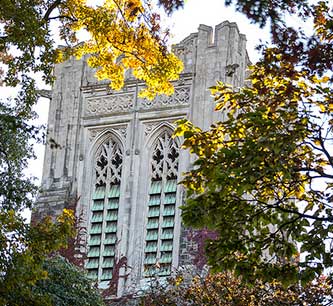- About
About
- Academics
Academics
- Research
Research
- Admissions
Admissions
- Student Life
Student Life
- Athletics
Athletics
- Giving
Giving
- Students, Faculty & Staff
- Parents
- Visitors
- Alumni

Lehigh University
Communications and Public Affairs
301 Broadway, 4th Floor - Suite 400
Bethlehem, PA 18015
U.S.A.
P: 610-758-4487
Fax: 610-758-5566
Email: communications@lehigh.edu
Website: www.lehigh.edu/communications
Kristen DiPrinzio
Director, University Communications
The 2018 Symposium on Teaching and Learning focuses on innovative techniques for engaging and guiding students and for interacting with the community.
To foster an inclusive campus community, free from harassment and discrimination, it is essential to assess the state of the University’s climate. As part of our voluntary agreement with the Office for Civil Rights in the Department of Education, Lehigh launched its first climate survey in ten years in the fall of 2015.
To foster an inclusive campus community, free from harassment and discrimination, it is essential to assess the state of the University’s climate. As part of our voluntary agreement with the Office for Civil Rights in the Department of Education, Lehigh launched its first climate survey in ten years in the fall of 2015.
The event provides participants the opportunity to learn about unconscious bias.
The Institutes build upon existing strengths in areas in which Lehigh can make broad societal impact.
The Lehigh Student Chapter of the United States Association for Energy Economics to co-host symposium with renowned experts from government, industry and academia.
Wesson begins his new role on June 1.
Melpomene Katakalos and Will Lowry bring their extensive professional theatrical design experience and shared affinity for contemporary plays to Lehigh’s stages and classrooms.
A Lehigh team, led by Alec Bodzin, develops an innovative geospatial curriculum to help build students’ STEM-related skills.
With wide-ranging approaches to solving global problems, teams of Lehigh researchers tackle key questions about the future of energy and infrastructure—and by extension, the very future of modern society.
The opioid epidemic is complex and multifaceted, so the solutions are unlikely to be simple. Universities have the great advantage of the presence of faculty with diverse skill sets working in close proximity. If a university can create an environment that promotes interaction, cross-pollination of ideas, and interdisciplinary collaboration, it can become an ideal breeding ground for creative solutions to important societal issues.
Of all the needs we humans share, none is as unifying as our need for safe drinking water.
Shaping the Future of Global Health Care
Dawn Keetley delves into the life of young 19th-century killer Jesse Pomeroy—and uncovers a possible explanation for his crimes.
Neal M. Snow explores whether companies should release financial news via social media.
Wonpil Im’s web-based graphical user interface, CHARMM GUI, eases modeling of complex biomolecular systems, possibly paving the way for better understanding of drug-resistant bacteria.
Chad Kautzer uses a theory of social justice to examine cultural shifts behind expansion of gun rights in the United States.
In the wake of the financial crisis, fintech has revolutionized the financial services industry. Michael B. Imerman wants to know whether the market rewards traditional financial institutions that acquire fintech firms—and whether fintech poses a systemic risk to the financial services industry.
Historian María Bárbara Zepeda Cortés digs into the complicated life of José de Gálvez, a little-studied reformer of the Spanish Empire who played a critical role in California's history.
Defense attorney and community leader John C. Lowe ’57 was an advocate and an optimist.